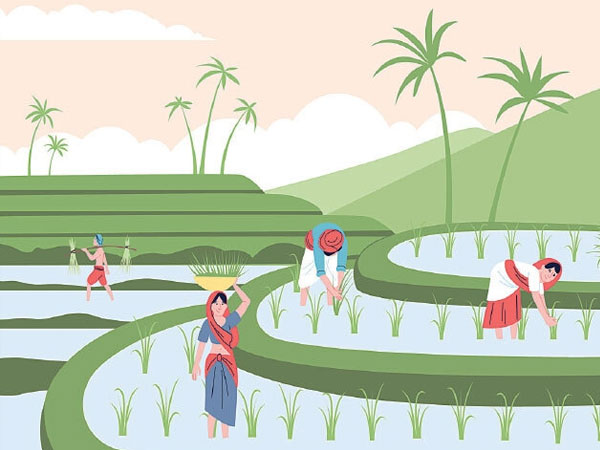CEBU CITY — A progressive youth group slammed the current administration for resorting to what it called "band-aid" solutions to the country's agricultural crisis, saying the P20 per kilo rice program is politically driv-en and disconnected from the actual conditions faced by Filipino farmers.
Kabataan Party-list second nominee and agriculturist Jose Paolo Echavez described the initiative as heavily subsidized and unsustainable, saying it falls short of addressing the root problems plaguing the agricultural sector.
The problem of importation remains unsolved, and no real solution has been given to our farmers," said Ec-havez.
Echavez blamed the agricultural crisis on the lack of genuine land reform, dependence on rice imports, and unchecked control by cartels.
He said the government is "bleeding billions" to sell rice cheaply while failing to solve structural problems, leaving farmers without proper support.
He criticized the weakening of the National Food Authority (NFA) under the Rice Tariffication Law and called for its repeal.
Echavez also questioned the May 1 launch of the program in Central Visayas, noting it came just two weeks before the elections.
Echavez said it was disrespectful to use people's basic needs for political gain, claiming that the program's continuation until 2028 was a form of premature positioning.
"The administration keeps patching things up without curing the root problem. If this continues, we might as well build a band-aid factory," he said.
He maintained that true agricultural development could only be achieved if the government commits to en-acting measures like the proposed Rice Industry Development Act, which aims to boost local production for food security and self-sufficiency.
"Artificial, short-sighted, and non-comprehensive — that's the best way to describe the P20 per kilo rice pro-gram," he said.
In April, President Ferdinand Marcos Jr. launched the rice subsidy program in Regions 6, 7, 8, and the Negros Island Region with backing from local governors.
The pilot run began on May 1, allowing families to buy up to 10 kilograms of rice per week through their LGUs, with costs split between the national and local governments.
However, the program is currently suspended due to the election spending ban.
Agriculture Secretary Francisco Tiu Laurel Jr. said the initiative was prompted by lower global rice and fuel prices and the need to clear DA warehouses.
He added that the government aims to make the program permanent until 2028.














© Copyright 2025 The SSResource Media.
All rights reserved.